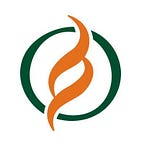This Youth Leader in Malawi is Helping Adolescents Learn Critical Life Skills
Story and photo by Chisomo Mdalla
The grounds around Kapiri Health Center in Malawi’s Nkhotakota District are a beehive of activity, with boys and girls of all ages playing hotchpotch, kicking a makeshift ball, and chattering loudly. Suddenly, they run for the indaba — a repurposed outpatient waiting shelter. Hawa Swaleyi is approaching, carrying her frame with an aura of grace and positivity. With a familiar smile she greets her youth group, who cheerily respond in sing-song voices. Every Sunday, local youth gather to visit with Hawa — to learn from her about the challenges they face during this transitionary period of their lives.
This afternoon, 24-year-old Hawa is facilitating a mixed-gender group of about 30 youth, ranging from 9 to 13 years old, with a few older adolescents scattered in the crowd. “We usually have two groups when we meet. One for preteens and another for adolescents,” Hawa explains. “In total, Kapiri Youth Club has 55 active members.”
Today’s discussion focuses on relationships. Youth take turns describing different types of relationships and the benefits and/or risks associated with each. Hawa encourages the young participants to enrich conversation with contextual examples, sharing stories, or their own experiences. Interlinked concepts emerge — the challenges of poorly managed relationships (peer pressure, teen pregnancy, teen marriage), dropping out of school, and poverty. Through earnest but good-natured discourse, they also recognize the benefits that positive relationships can bring, including good health and personal development.
The MSH-led, USAID-funded Organized Network for Everyone’s (ONSE) Health Activity in Malawi modified the PEPFAR DREAMS (Determined, Resilient, Empowered, AIDS-free, Mentored, and Safe) Toolkit to focus on building soft skills and raising health awareness. Many youth groups already exist in Malawi, however, these groups are often unstructured and do not meet the needs of the most vulnerable. ONSE builds on groups’ current activities by adding the life-skills curriculum. Forty youth clubs in four districts (Balaka, Karonga, Lilongwe, and Nkhotakota [where Hawa and her group are located]) have begun to use the curriculum, reaching over 700 youth in just the first few months of implementation.
When ONSE asked for candidates to be youth group facilitators, Hawa’s name was at the top of the list, given her community reputation as an active youth model and hardworking, trustworthy individual. After training in April 2018, Hawa began serving as a youth facilitator and was on the Youth Action Committee — a district-wide group that analyzes health plans to ensure they are responsive to youth needs. She is also a volunteer counselor for young people living with HIV, confidentially following up with those who have defaulted on their antiretroviral therapy and even bringing medication to their homes. Hawa and other young facilitators continue to receive learning resources, recreational materials, and mentorship from ONSE’s youth officer to strengthen their leadership skills.
Hawa’s passion for working with younger adolescents is driven by her desire to see more girls attain a certificate level of education and feel confident to stand up for themselves. Her concern is palpable on her face as she says she doesn’t know any girl her age in her community who finished secondary school. She said most have married, divorced, or are nursing a child or two without any support. Nkhotakota’s dropout rates for both girls and boys are some of the highest in Malawi, with a secondary school completion rate of below 10 percent.
Of her recent work as a facilitator, Hawa said the toolkit has provided her with an indispensable skill set to challenge youth in her community, particularly girls, to aim for a better future in very practical ways. “The toolkit touches all aspects of a young person growing up. It has helped guide my approach in engaging the youth.”
Esther Nyirenda, the head nurse at Kapiri Health Center where Hawa hosts the youth groups, says, “She is an important link between the health center and the community, especially the youth — most of whom have questions, but are either afraid or do not know who to ask. She has demystified sexual reproductive health issues among the youth in a very empowering way. She commands the trust of this community. She has been following up on some of our [antiretroviral therapy] clients in a manner so discreet — to very positive results.” Hawa has followed up with more than 15 adolescents since assuming her role.
What do Hawa’s own dreams look like? “Huge. I have big dreams. By 2020, I want to qualify as a nurse midwife. Meanwhile, I am enjoying working with these youth.”
To learn more about our work, visit msh.org and stay up to date with MSH by subscribing to our email series.
